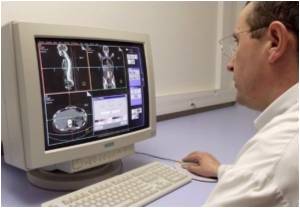Irritable Bowel Syndrome (IBS) is a condition that causes serious inconvenience and discomfort to sufferers, which could have major implications in how it is both diagnosed and treated in the future.

In three separate studies, the researchers examined the effectiveness of using MRI to study the colon, which has a number of unique advantages.
Previously, doctors have relied on x-rays to view the colon, which has limitations due to the risks associated with radiation. By using MRI as an alternative, the researchers have been able to image the bowel continuously with no risk to the patient, enabling them to learn more about the inner workings of the gut.
In the first study scientists studied people with accelerated transit and found that the colon size was rather similar to those with normal transit, suggesting people regulate their bowel habit to keep the colonic size constant.
In the second paper scientists used MRI to measure the actual time it takes for contents to transit the bowel, using specially designed MRI visible markers which subjects ingest.
The researchers said the use of x-rays in this type of procedure is undesirable for children or young women of child rearing age- which is unfortunate as both of these groups can suffer with bowel function that may need investigating. So developing this alternative method of examination has particular appeal, particularly in children- who tend to suffer with a wide range of bowel problems.
Advertisement
By looking at fructose, a sugar commonly found in fruit, and fructans, which are polymers of fructose, researchers were able see what effects these had on the gut of healthy volunteers.
Advertisement
The study was published in American Journal of Gastroenterology.
Source-ANI















